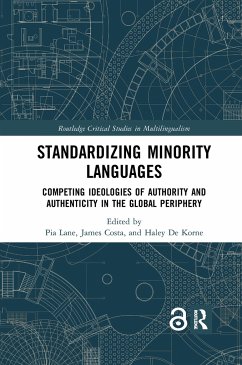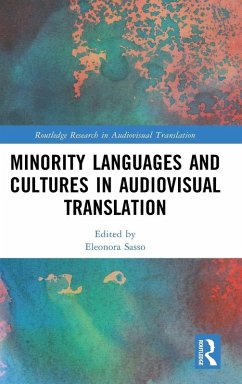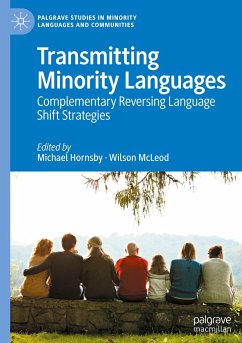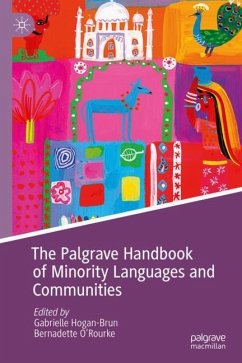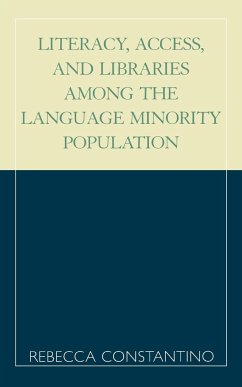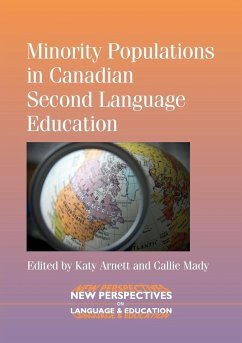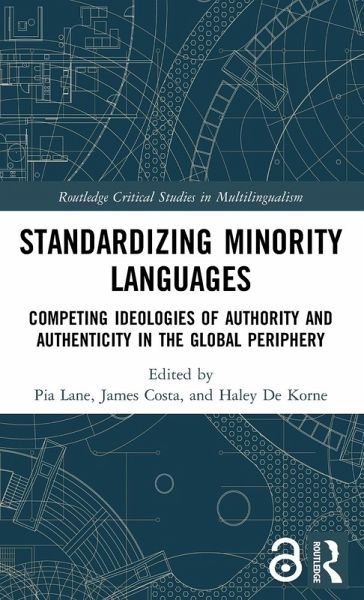
Standardizing Minority Languages
Competing Ideologies of Authority and Authenticity in the Global Periphery
Herausgeber: Lane, Pia; de Korne, Haley; Costa, James
Versandkostenfrei!
Versandfertig in 1-2 Wochen
185,99 €
inkl. MwSt.
Weitere Ausgaben:

PAYBACK Punkte
93 °P sammeln!
The Open Access version of this book, available at https://www.taylorfrancis.com/books/9781138125124, has been made available under a Creative Commons Attribution-Non Commercial-No Derivatives 4.0 license. This volume develops a highly original approach to minority language standardization, focusing on social actors and their ideologies and practices rather than language form. Contributors take an ethnographic approach, focusing on local practices and individual agency, drawing on research from a range of settings where minority languages are spoken.




